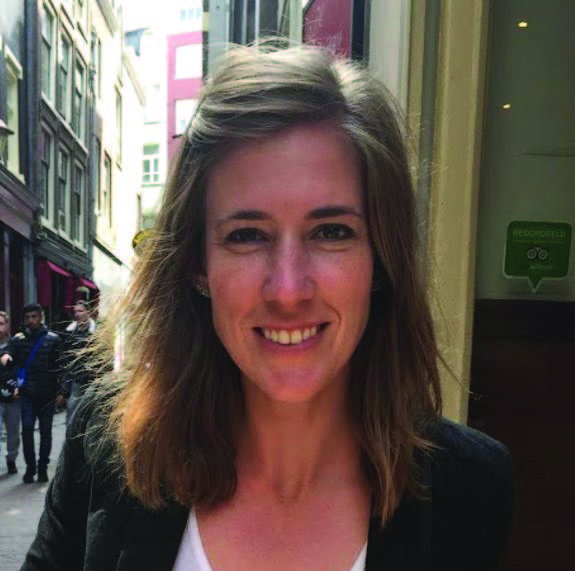 Energetic barely begins to describe geosciences alumna Ashlee Dere.
Energetic barely begins to describe geosciences alumna Ashlee Dere.
An associate professor of geology at the University of Nebraska Omaha (UNO), Dere continues to build an impressive research profile while balancing her teaching and mentoring duties, and giving presentations and seminars across the globe.
Dere graduated from Penn State with a master’s degree in soil science in 2009 and a Ph.D. in geosciences in 2014. She joined the faculty at UNO after graduation and has since presented her research in places as far away as Paris, France, and Yokohama, Japan.
Dere’s research focuses on the drivers of weathering and soil formation and how intensive agricultural land use influences soil structure and function within the critical zone, which extends from the bedrock to the upper extent of the vegetation. She also is an investigator with the National Science Foundation-funded Critical Zone Observatory (CZO) program, established to investigate biogeochemical processes occurring at Earth’s surface.
“I really love working with soils and being out in the field digging soil pits and discovering the information that is within them,” she said. “Through this research, we can learn how these features formed, what they mean for ecosystems, and how they impact the evolution of the landscapes.”.
Dere encourages her undergraduate students to get involved in her soil research, teaching them how to collect water samples and soil cores. She has taken students to field sites near the Omaha campus, in the Appalachian region, and as far away as Puerto Rico, Alaska, and Australia.
“I really like working with students,” Dere said. “Being able to bring them out into the field and show them this excitement has been a really fun part of this job.”
She first became interested in soils as an undergraduate student at California Polytechnic State University, San Luis Obispo after participating in a soil judging program. The program gives students field experience analyzing, describing, and interpreting soil profiles. She found the experience so rewarding that she started a soil judging team at UNO.
“The university is very much an urban campus,” she said. “It’s been really fun having students take a chance on something that they aren’t familiar with, and seeing them come out after just one week with skills that they can use moving forward in their careers.”
Dere credits the training and mentoring she received at Penn State for helping in her early career. She named Susan Brantley, Distinguished Professor of Geosciences and director of the Earth and Environmental Systems Institute (EESI), and Tim White, research professor in EESI, as important mentors. She still stays in touch with both researchers. This summer, Dere and White conducted field work in Alaska and led a critical zone science field school in northern Italy. She still contacts Brantley for career advice.
“I’m so grateful to have this continued guidance,” Dere said. “Tim and Sue are so giving of their time and energy.”
UNO has recognized her efforts. This spring, the university granted Dere tenure, allowing her to complete the process a year early. She also received the Alumni Outstanding Teaching Award.
Dere has no plans to slow down anytime soon. “Now we have connections with people of different specialties all over the world,” she said of the field school in Italy. “We’re a bit stronger moving forward and can do more work.”
Before coming to Penn State, Dere earned an undergraduate degree in earth sciences at Cal Poly and spent a year abroad studying French at the Université Paul Cézanne Aix-Marseille III in France. Outside the classroom, she enjoys running, traveling, and playing bass flute in a community flute choir.

